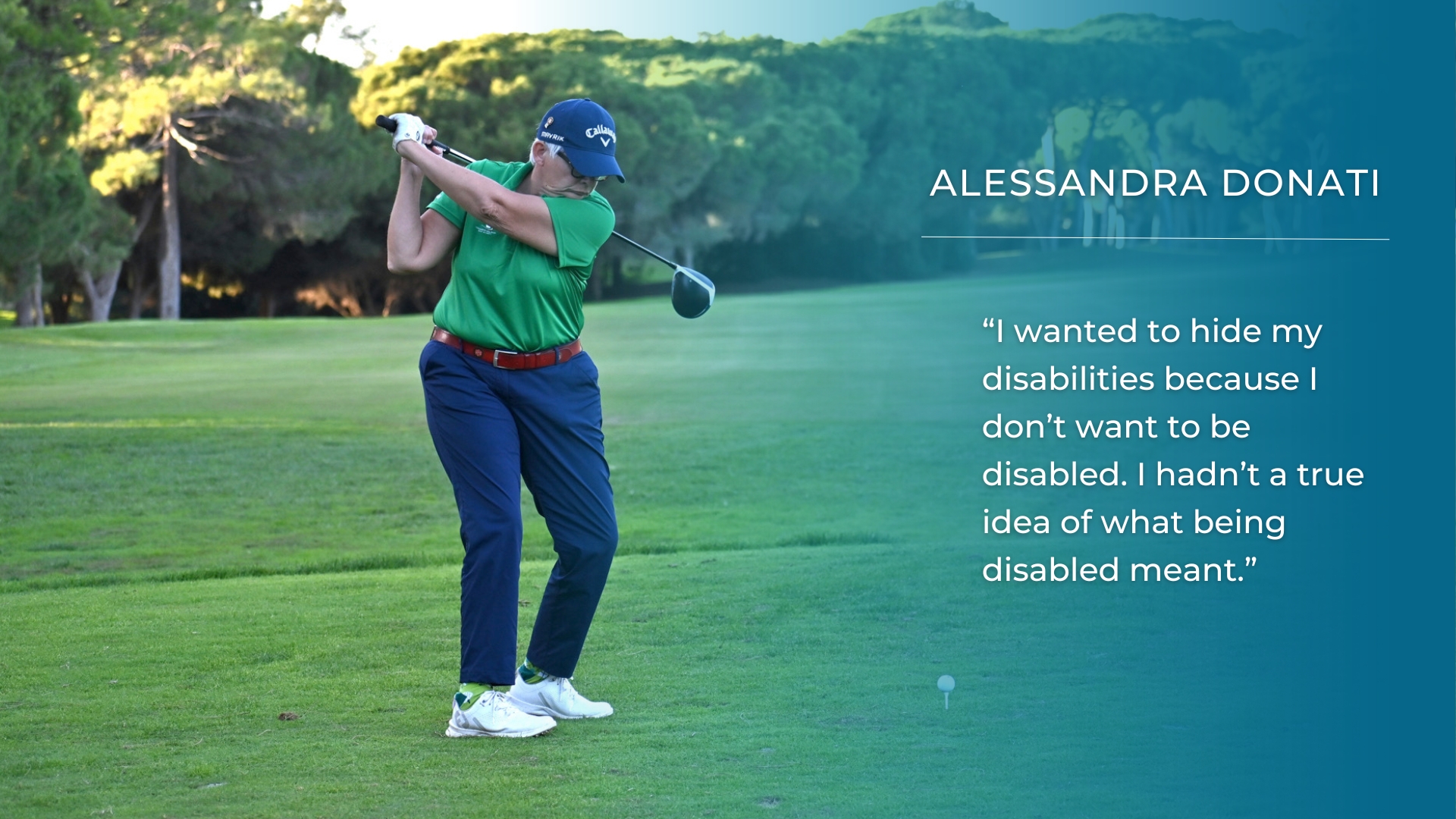Audio:
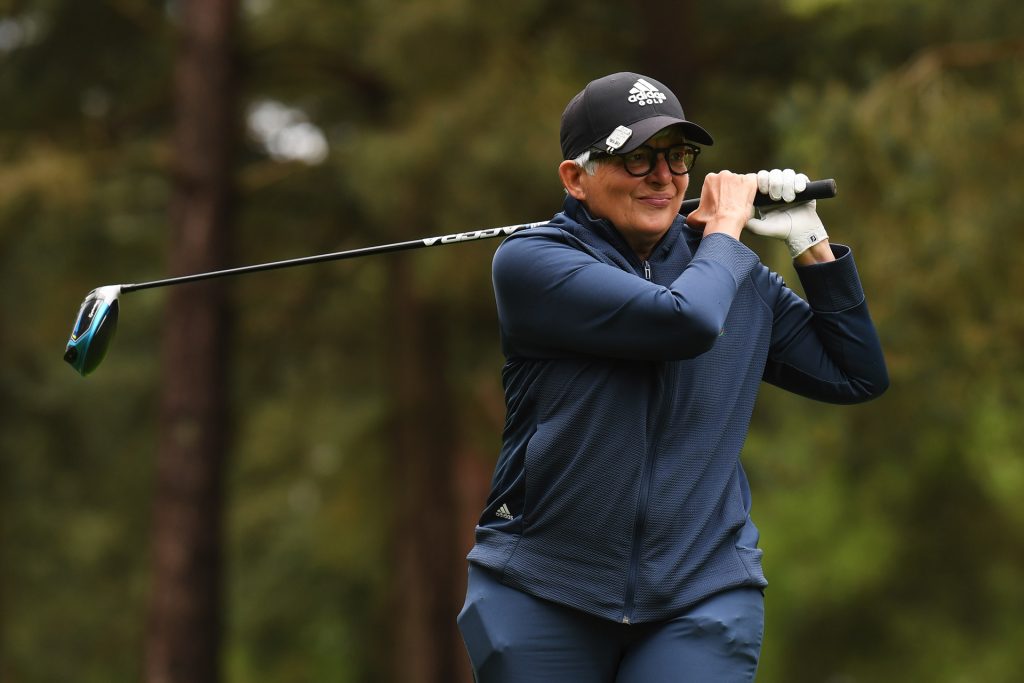
“Life is beautiful, and golf is like a beautiful flower in life.” There are a rhythm and music to the words that come from the heart of Alessandra Donati. It is only fitting that Faenza born Ale (pronounced Aa-lee) should use such an expressive way to describe her passion for golf. After all, the Italian town, best known for its ceramics, is surrounded by lovingly tended vineyards, cultivated land and fertile market gardens.
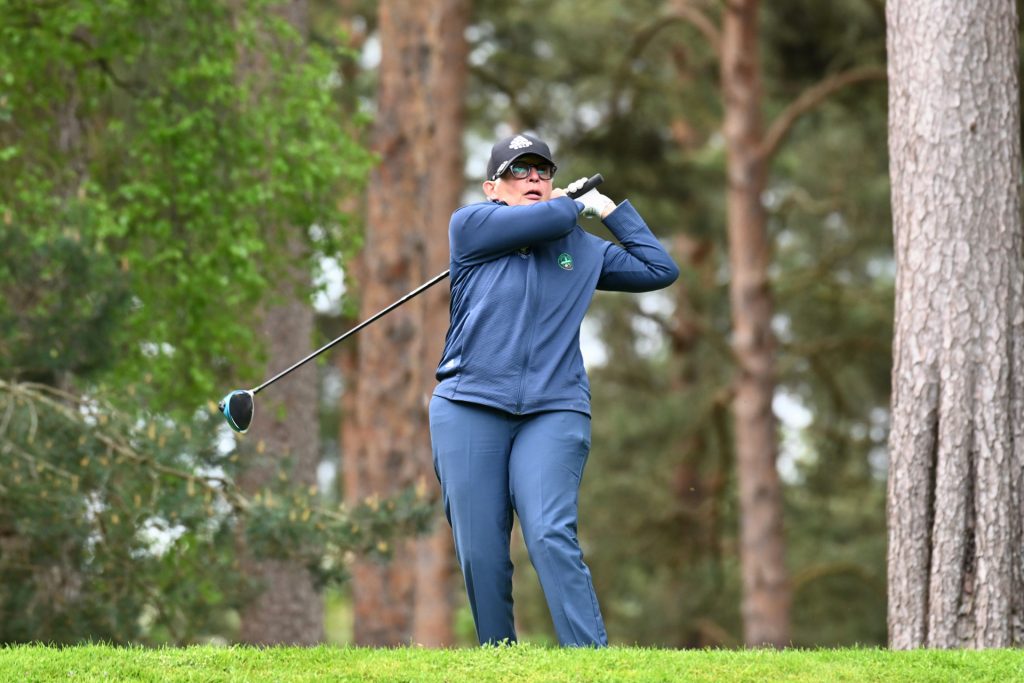
It is here that the first seeds of golf were planted in the heart and mind of Ale. American essayist and poet, Ralph Waldo Emerson wrote, “The Earth laughs in flowers.” Perhaps he meant that the earth laughs at us for believing that we own the land. Darwin visioned that a flower struggles to emerge before it can bloom and survive. Every golfer has heard the game snigger as it offers short moments of success before more extended periods of frustration.
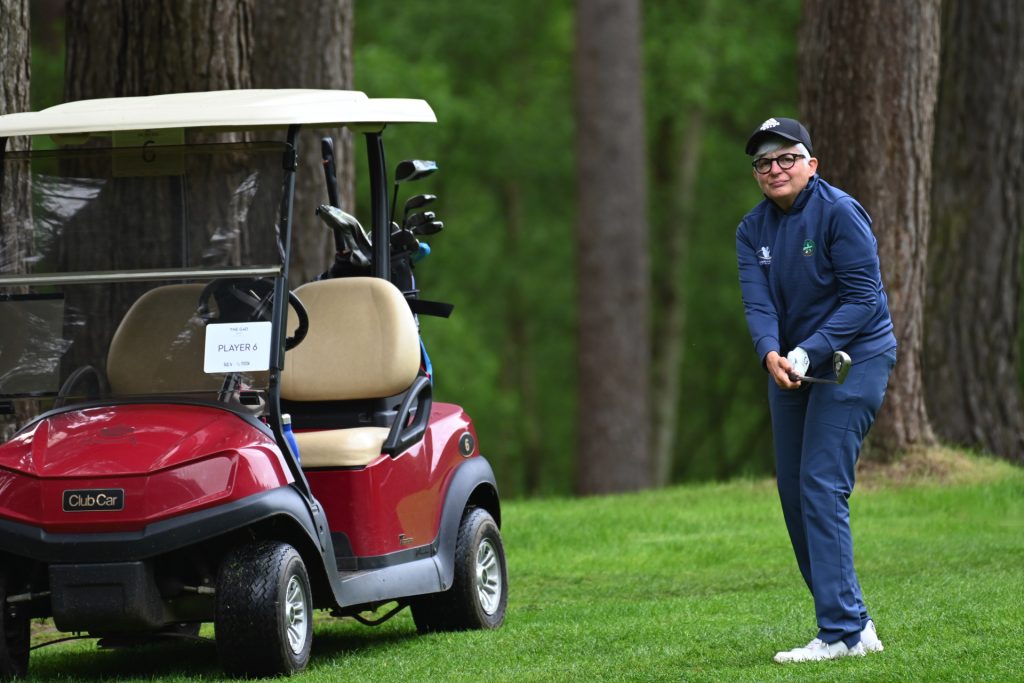
Some of golf’s many apparent attractions are the natural beauty of the setting in which it is played, the course layout, open spaces, fresh air, and the challenge of a game that continually changes. Life has changed for Ale, and over the last ten years, golf has become an essential part of her daily life. After almost 30 years of work in the bank La BCC, Ale is well versed in routine, and today her golf time is every bit as structured as is her work schedule. “Well, daily, in the morning, I work in the office. Then, in the afternoon, I stop work at 2:00 PM. Then I’ll go to the golf course (Golf Club Le Fonti, south of Bologna), one day in the week with Giovanni Dassù (his father is Baldovino Dassù, a European Tour player in the 70’s and 80’s), my teacher. One day with the teacher, and on two days, I practise alone. On Saturday and Sunday, I play little competitions on the golf course.”
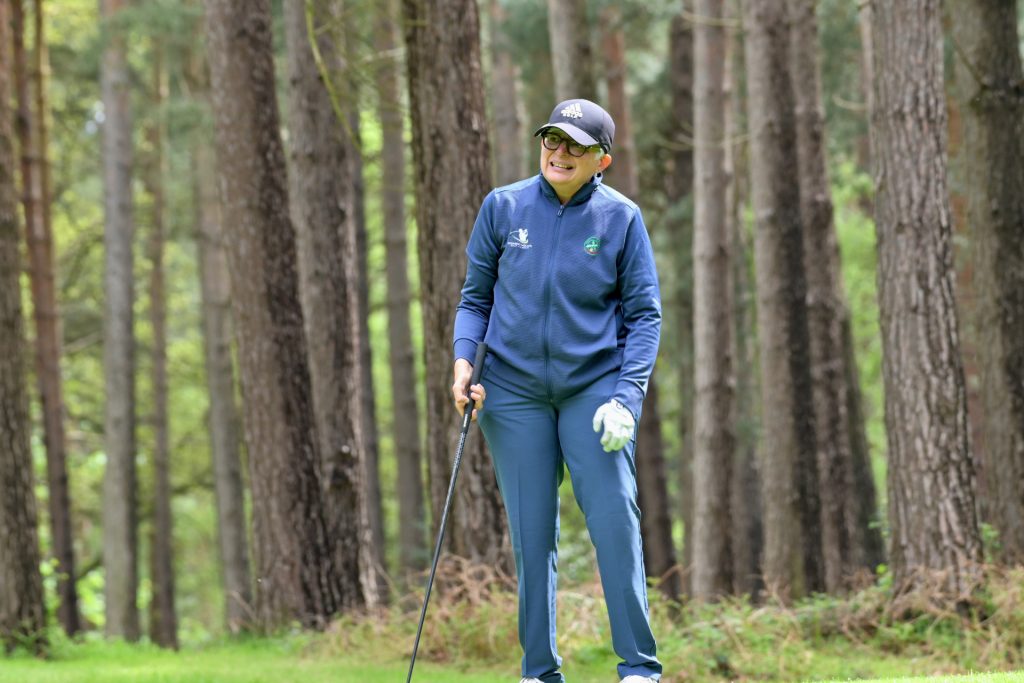
It wasn’t always like that for Ale, “I have a rare disease. I was born with Charcot-Marie-Tooth (CMT). It’s a progressive neuropathy disease. Every year, my weakness increases, but with golf I don’t see that, because the game is good to control my symptoms, as I can move the legs without much effort, without force. My disease is better when I keep moving, which keeps my mobility.”
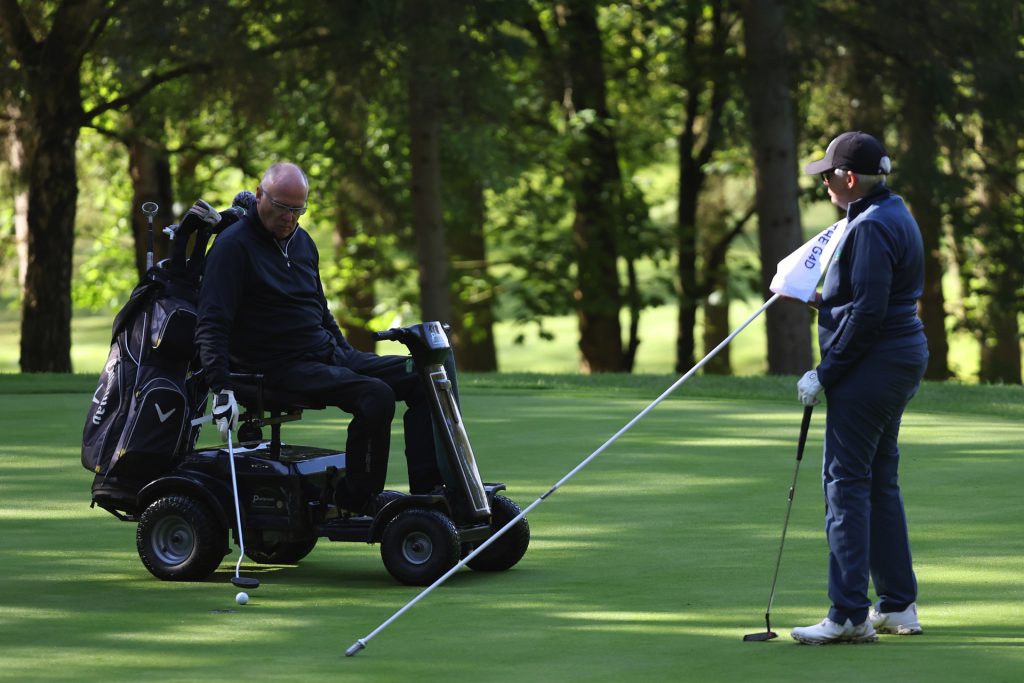
Ale could hide her impairment as a child, but it became progressively more difficult as she grew older. “The big difference came when I turned 30 years of age. It was a big problem for me because I wanted to hide my disease. I started to swim, but I was shy. I didn’t want other people to see me. Sometimes I would watch the eyes of others who looked at me like a stranger. I say to myself no, I don’t want to swim anymore. I stopped doing several things and just worked, and occasionally I would go to the cinema or restaurant.”
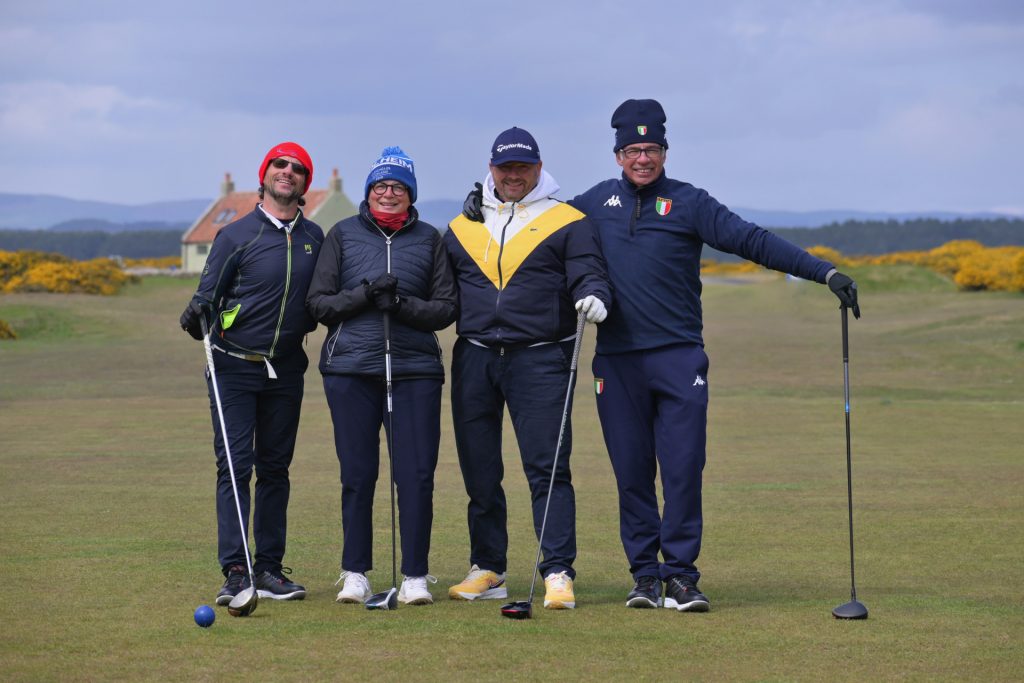
Renata, a friend of Ale, had been playing golf for many years and was keen for her close companion to give golf a try. “She told me, ‘oh, come with me to start playing golf.’ It’s a very, very quiet sport and you can try it.” Why not indeed? Golf was just the kind of sport where she would not be as exposed, a game where she could simply blend into the surroundings and play her own game. The problem for Ale was finding someone to teach her, “The golf teacher at the golf course said to me, ‘I don’t know, Paralympic golf, it’s impossible. I don’t know what you can do with this disease.’ I said, okay, I can pass my time in the clubhouse.”
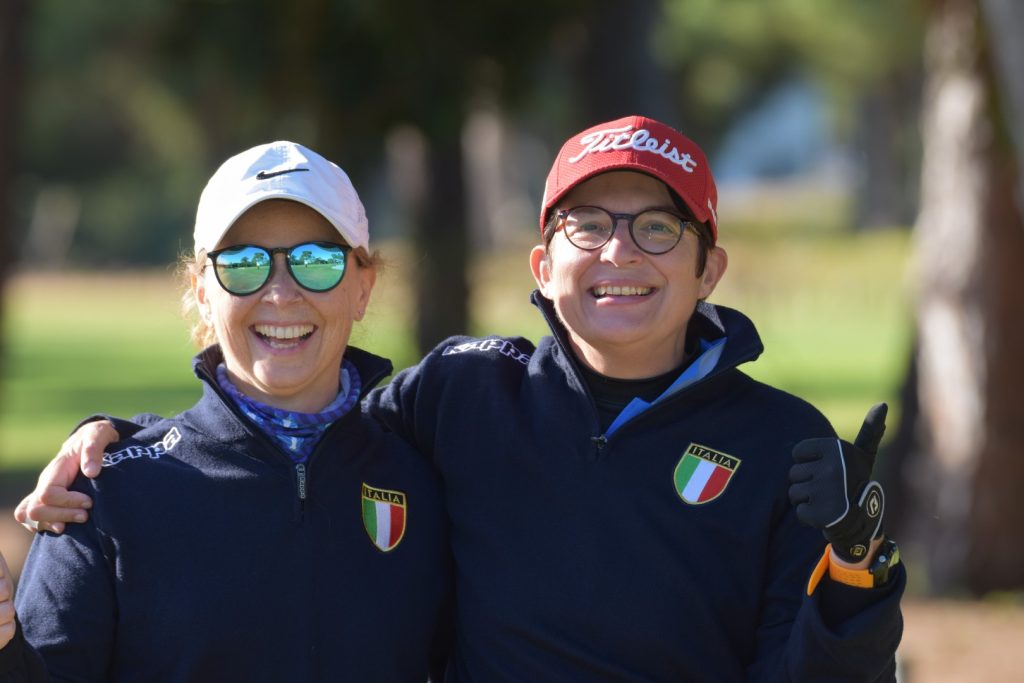
A seed had been planted, but it would lie dormant until it was fed with the proper nourishment. Golf was on Ale’s radar, albeit in a hardly positive way, but with Renata’s encouragement, it would be just a matter of time before another opportunity to try golf would appear. “Then, in the summer, I went to France, where I met a golf teacher, Daniel Dugué, and he said to me, ‘Oh, no. you can play golf, and you will enjoy yourself playing.’ He looked in my eyes, and I believed him. I returned to Italy, and found a golf teacher nearby in Bologna, called Adriano Ciancarelli. He said to me, ‘Okay, we can work together,’ and so I started to play.”
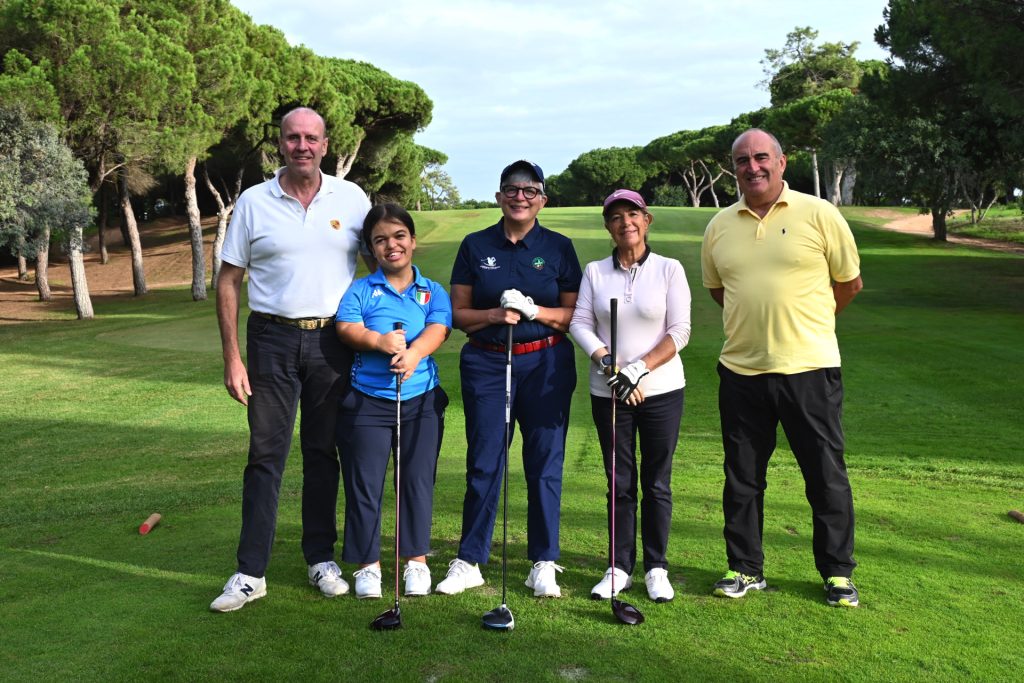
Ale grew, gradually emerging as a golfer, with skills to learn, rules to respect, and challenges to, overcome. “Before I started to play golf, I think I had like a cage in my mind. The cage was my disease, but playing golf is a continuous challenge, and every new step freed me from this cage. It opened the cage in my mind. Before golf, I thought that I couldn’t do many things. I couldn’t walk on the grass, but no, with golf I walk on the grass, I go in the bunkers, and it’s beautiful because I’m stronger. With golf, I feel stronger than years ago.”
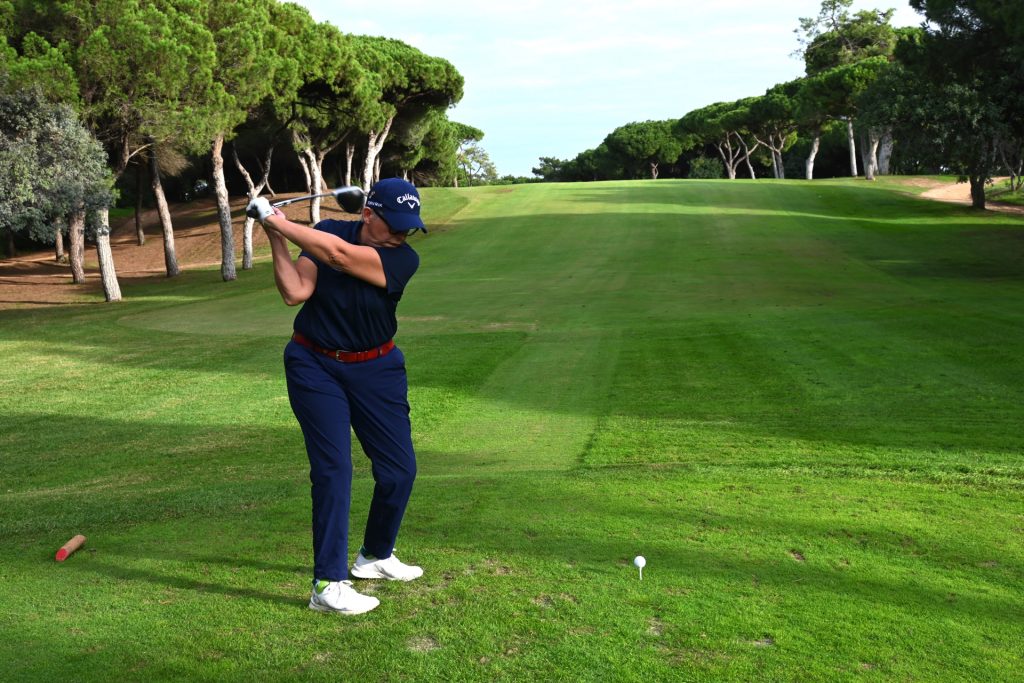
Ale grows with every season, her colours more vibrant, her understanding of herself, the game, and her disease more perceptive. “I wanted to hide my disabilities because I don’t want to be disabled. I hadn’t a true idea of what being disabled meant. It’s bad to say, but the common idea of disability, is a person without many things, but it’s not true. I have some characteristics like I wear glasses, I have the blue polo shirt, and then I have my disease CMT.”
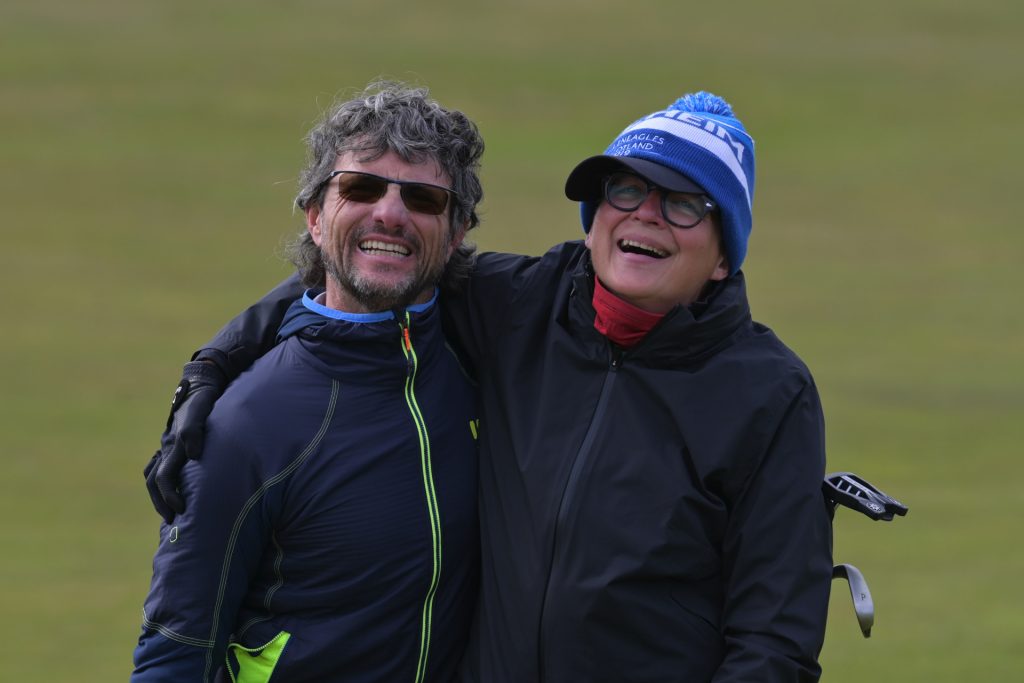
Golf is a community, people interacting on and around an environment which includes the course, and the clubhouse. Effectively the game is an ecosystem, one which can flourish with diversity. Ale sees the inclusive nature of golf and the notion of people playing together as one, with each person growing through their interactions with others. She sees barriers, of course, but ones that can easily be surmounted when there is a will to do so. “You are not alone, because we are a lot of golfers like you and like me. The difficulty is that there is no Paralympic culture in the golf clubs.” Every garden has variety, it is the different that please the eye and, more importantly, creates a sustainable ecosystem for the game.
Contact EDGA
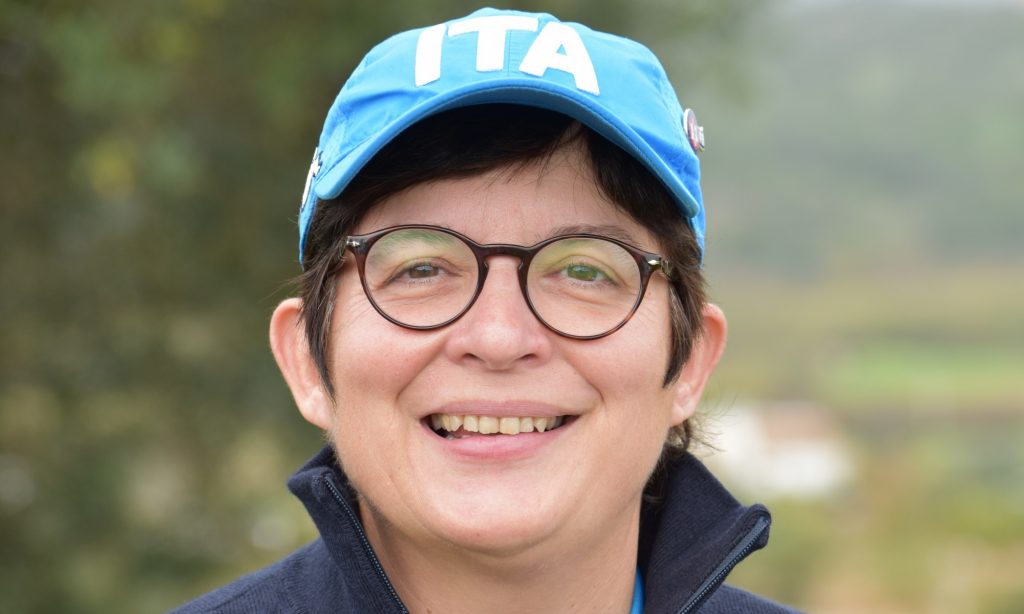
NB: When using any EDGA media, please comply with our copyright conditions


